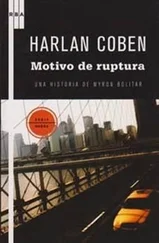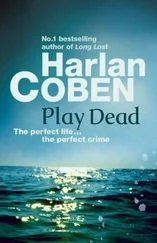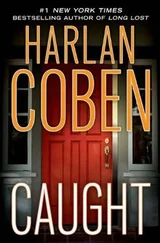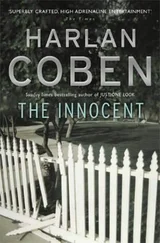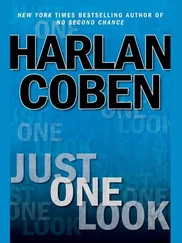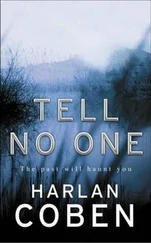Harlan Coben - Six Years
Здесь есть возможность читать онлайн «Harlan Coben - Six Years» весь текст электронной книги совершенно бесплатно (целиком полную версию без сокращений). В некоторых случаях можно слушать аудио, скачать через торрент в формате fb2 и присутствует краткое содержание. Год выпуска: 2013, ISBN: 2013, Издательство: Orion, Жанр: Старинная литература, на английском языке. Описание произведения, (предисловие) а так же отзывы посетителей доступны на портале библиотеки ЛибКат.
- Название:Six Years
- Автор:
- Издательство:Orion
- Жанр:
- Год:2013
- ISBN:9781409144571
- Рейтинг книги:5 / 5. Голосов: 1
-
Избранное:Добавить в избранное
- Отзывы:
-
Ваша оценка:
- 100
- 1
- 2
- 3
- 4
- 5
Six Years: краткое содержание, описание и аннотация
Предлагаем к чтению аннотацию, описание, краткое содержание или предисловие (зависит от того, что написал сам автор книги «Six Years»). Если вы не нашли необходимую информацию о книге — напишите в комментариях, мы постараемся отыскать её.
Six Years — читать онлайн бесплатно полную книгу (весь текст) целиком
Ниже представлен текст книги, разбитый по страницам. Система сохранения места последней прочитанной страницы, позволяет с удобством читать онлайн бесплатно книгу «Six Years», без необходимости каждый раз заново искать на чём Вы остановились. Поставьте закладку, и сможете в любой момент перейти на страницу, на которой закончили чтение.
Интервал:
Закладка:
Quite the wordsmith, but I knew what she meant. We should meet at Judie’s Restaurant on Main Avenue at 1:00 P.M. Okay, fine. I put the phone away and started up the porch steps.
Eban rose and offered me a condescending smile. “Jacob. So good to see you.”
His handshake felt greasy. His fingernails were manicured. Women found him handsome in an aging-playboy sort of way, what with the long unruly hair and big green eyes. His skin was waxy, as though his face were either melting or still recovering from some kind of skin treatment. I suspected Botox. He wore slacks a size too tight and a dress shirt that could have used one more closed button. His cologne smelled like too many European businessmen jammed into a morning elevator.
“Do you mind sitting on the porch?” he asked. “It’s so beautiful out.”
I readily agreed. I didn’t want to go inside and see what he’d done with the place. I knew the work had been extensive. Gone, I was sure, were the dark woods, the cognac and cigar feel, traded in for blond wood and couches in colors like “eggshell” and “churned butter” and gatherings that only served white wine and Sprite because they wouldn’t stain the upholstery.
On cue, he offered me white wine. I politely declined. He had his in hand. It wasn’t even noon. We both sat on wicker chairs with big pillows.
“So what can I do for you, Jacob?” he asked.
I had taken a class with him sophomore year on Mid-Twentieth-Century Drama. He wasn’t a bad teacher. He was both effective and affected, the kind of teacher who loves nothing more than the sound of his voice and while he is rarely boring—the kiss of death in any class—the lessons are all a tad professor-centric. He spent one week reading Genet’s The Maids in its entirety out loud, taking on each character, reveling in his own performance, not to mention the S&M scenes. The performance was good, no doubt, but, alas, it was all him.
“I wanted to ask you about a student,” I said
Eban raised both eyebrows as though my words were both intriguing and surprising. “Oh?”
“Todd Sanderson.”
“Oh?”
I saw him stiffen. He didn’t want me to see it. But I did. He looked off and stroked his chin.
“You remember him,” I said.
Eban Trainor stroked his chin some more. “The name rings a bell, but . . .” A few more strokes and then Eban shrugged in surrender. “I’m sorry. So many years, so many students.”
Why didn’t I believe him?
“You didn’t have him in class,” I said.
“Oh?”
Again with the oh.
“He came up before the discipline committee when you were in charge. This would have been about twenty years ago.”
“And you expect me to still remember?”
“You helped keep him on campus after an altercation. Here, let me show you.” I pulled out my laptop and brought up the scan of his handwritten decision. I held out the laptop. Eban hesitated as though it might contain explosives. He took out his reading glasses and examined the letter.
“Wait, where did you get this?”
“It’s important, Eban.”
“This is from a student’s confidential file.” A small smile crossed his lips. “Isn’t reading this file breaking the rules, Jacob? Wouldn’t you say you were crossing boundaries?”
So there it was. Six years ago, just a scant few weeks before I headed up to that retreat in Vermont, Professor Eban Trainor hosted a graduation party at his then-house. Trainor frequently hosted parties at his house. In fact, he was somewhat legendary for both throwing and attending them. When I was a sophomore, there had been a rather famous incident at Jones College, the nearby all-women institution, during which a fire alarm went off at three in the morning, forcing a dorm to evacuate, and there stood Professor Trainor, half-dressed. True, the coed he’d been seeing that particular night was of legal age and not one of his students. But this was typical Trainor. He was a letch and a drunk, and I didn’t like him.
The graduation party six years ago was mostly attended by students, many of whom were underclassmen and thus underage. Alcohol had been served. A lot of it. Campus police were called. Two students were taken to the hospital for alcohol poisoning, something that happens with increasing frequency on college campuses. Or maybe that’s what I tell myself because I like to think that it was not as bad in “my day.”
Professor Trainor was brought up before the administration for his actions. There were calls for his resignation. He refused. He claimed that, yes, he had offered alcohol to the attendees but only seniors who were over twenty-one years old were invited. If underclassmen crashed the party, he should not be held responsible. He also suggested that much of the alcohol had been consumed before his party began, at a nearby fraternity kegger.
The professors on campus govern themselves. We rarely do more than slap one another on the wrist. Like with the student discipline committee, professors rotate through. As luck would have it, I was on the committee when this incident occurred. Trainor had tenure and couldn’t be fired, but I firmly believed that he deserved some sort of disciplinary action. We took a vote to have Trainor removed as chairman of the English department. I argued in favor of the punishment. There were simply too many incidents of this kind of behavior in his past. Interestingly enough, my beloved mentor, Malcolm Hume, did not agree.
“Are you really going to blame Eban for students drinking too much?” he had asked me.
“There are reasons why we have rules about fraternizing with students when alcohol is served.”
“The extenuating circumstances don’t mean anything to you?”
They might have, I guessed, if I hadn’t already seen Eban’s pattern of obvious bad behavior and poor choices. This wasn’t a court of law or a question of rights; this was a great job and a privilege. In my view, his actions warranted termination—we expel students for far less and with far less evidence—but at the very least, he deserved a demotion. Despite my mentor’s urging, I voted in favor of taking away his chairmanship, but I was outvoted by a wide margin.
Those hearings might be long over, but the resentment lasts. I had used those exact terms—“broken rules,” “crossed boundaries”—during the supposedly closed debates. Nice to have my own words thrown back at my face, but maybe that was fair.
“This particular student,” I said, “is dead.”
“So his confidential file is now fair game?”
“I’m not here to argue legal minutiae with you.”
“No, no, Jacob, you’re a big-picture guy, aren’t you?”
This was a waste of time. “I don’t really understand your reticence.”
“That surprises me, Jacob. You’re usually such a rules follower. The information you’re asking for is confidential. I’m protecting Mr. Sanderson’s privacy.”
“But again,” I said, “he’s dead.”
I did not want to sit here, on this lemonade porch where my beloved mentor spent so many wonderful hours, another moment. I rose and reached for my laptop. He did not hand it back to me. He started doing the chin rub again.
“Sit,” he said.
I did.
“Would you tell me why a case this old would have relevance to you now?”
“It would be very hard to explain,” I said.
“But it is clearly very important to you.”
“Yes.”
“How did Todd Sanderson die?”
“He was murdered.”
Eban closed his eyes as though that revelation made it all so much worse. “By whom?”
“The police don’t know yet.”
“Ironic,” he said.
“How so?”
“That he would die by violence. I remember the case. Todd Sanderson injured a fellow student in a violent altercation. Well, that’s not really an adequate way of stating it. In truth, Todd Sanderson nearly killed a fellow student.”
Читать дальшеИнтервал:
Закладка:
Похожие книги на «Six Years»
Представляем Вашему вниманию похожие книги на «Six Years» списком для выбора. Мы отобрали схожую по названию и смыслу литературу в надежде предоставить читателям больше вариантов отыскать новые, интересные, ещё непрочитанные произведения.
Обсуждение, отзывы о книге «Six Years» и просто собственные мнения читателей. Оставьте ваши комментарии, напишите, что Вы думаете о произведении, его смысле или главных героях. Укажите что конкретно понравилось, а что нет, и почему Вы так считаете.



